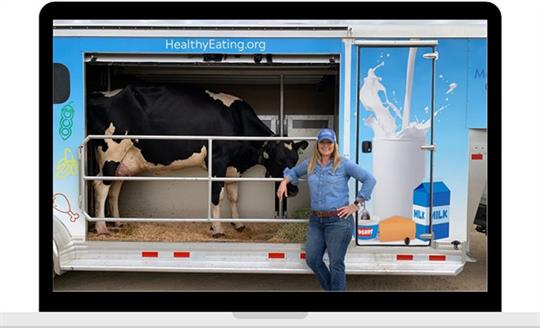Explore how educators and advocates support students and families health by sharing and using food access resources.




Federally funded programs that provide nutritious, low-cost or free meals to students.

The National School Lunch Program has played an important role in nourishing students across the U.S. by providing little to no cost meals daily. Read the "Celebrating Impact of School Lunch In + Out of the Classroom" blog post to learn more.
Mornings are the ideal time to "break the fast" and provide children with important nutrients to nourish and fuel them for success! In this episode of Ask a Nutritionist, Maureen Bligh, RDN, addresses why kids should eat breakfast.
Milk, a nutritious beverage, is rich in protein and contains 9 essential nutrients that supports optimal growth and development.
Every year in the U.S., federal school meal programs serve 4.9 billion lunches and 2.45 billion breakfasts—that equates to millions of nutritious meals for students every school day. Milk is an important part of these school meals, providing students with essential nutrients that are typically under-consumed in the American diet, including calcium, vitamin D, and potassium. In this episode of Ask a Nutritionist, Registered Dietitian Nutritionist Megan Holdaway answers the question, "Why is milk an important part of school meal programs?”

School meals have always been a critical access point for the nutritious foods that children need to grow and learn and help ensure children, especially families living at or below the poverty line, are able eat. Read more to learn how mental health outcomes in children and teens are influenced by food insecurity.
Access easy-to-use, turnkey nutrition resources to support distance learning.